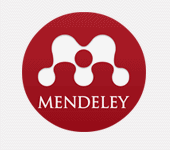GREEN TOURISM COMMUNICATION POLICY: THE MINISTRY OF TOURISM AND CREATIVE ECONOMY'S SUSTAINABLE PRACTICES IN BUILDING DIGITAL ECOTOURISM AWARENESS
Abstract
Keywords
Full Text:
PDFReferences
Abdrassilova, G., Danibekova, E., Tuyakayeva, A., & Syzdykova, A. (2024). ARCHITECTURE OF ALMATY IN THE 20TH CENTURY: IN SEARCH OF CULTURAL IDENTITY. In Bulletin of Kazakh Leading Academy of Architecture and Construction (Vol. 94, Nomor 4, hal. 8–23). LLP International Educational Corporation. https://doi.org/10.51488/1680-080x/2024.4-01
Agius, K. (2021). So close yet so far: Island connectivity and ecotourism development in central Mediterranean islands. Case Studies on Transport Policy, 9(1), 149–160. https://doi.org/10.1016/j.cstp.2020.11.006
Baldi, G., Megaro, A., & Carrubbo, L. (2022). Small-Town Citizens’ Technology Acceptance of Smart and Sustainable City Development. In Sustainability (Vol. 15, Nomor 1, hal. 325). MDPI AG. https://doi.org/10.3390/su15010325
Bian, Y. (2023). Territorial Edge Computing Enabling Green Tourism and Green Development of CIPP Model Analytics. EAI Endorsed Transactions on Energy Web, 10. https://doi.org/10.4108/EW.3947
Chan, C. H., Wong, K. Y., & Lui, T. W. (2023). Marketing Tourism Products in Virtual Reality: Moderating Effect of Product Complexity. Springer Proceedings in Business and Economics. https://doi.org/10.1007/978-3-031-25752-0_34
Coirala, F. A. (2022). Model Pentahelix Dalam Pengembangan Kawasan Konservasi Penyu Berbasis Ekowisata di Ampiang Parak Kabupaten Pesisir Selatan. In SALAM: Jurnal Sosial dan Budaya Syar-i (Vol. 9, Nomor 6, hal. 1871–1880). LP2M Universitas Islam Negeri (UIN) Syarif Hidayatullah Jakarta. https://doi.org/10.15408/sjsbs.v9i6.27764
Cox, R., & Depoe, S. (2015). EMERGENCE AND GROWTH OF THE “FIELD” OF ENVIRONMENTAL COMMUNICATION. In The Routledge Handbook of Environment and Communication. https://doi.org/10.4324/9781315887586-11
Creswell, J. W., & Creswell, D. J. (2022). Research design - international student edition: Qualitative, quantitative, and mixed methods approaches. In Research design - international student edition : qualitative, quantitative, and mixed methods approaches.
Datlen, G. W., & Pandolfi, C. (2020). Developing an online art therapy group for learning disabled young adults using WhatsApp. International Journal of Art Therapy: Inscape, 25(4). https://doi.org/10.1080/17454832.2020.1845758
Duxbury, N., Bakas, F. E., de Castro, T. V., & Silva, S. (2021). Creative tourism development models towards sustainable and regenerative tourism. Sustainability (Switzerland), 13(1). https://doi.org/10.3390/su13010002
Edmonds, W. A., & Kennedy, T. D. (2020). An Applied Guide to Research Designs: Quantitative, Qualitative, and Mixed Methods. In An Applied Guide to Research Designs: Quantitative, Qualitative, and Mixed Methods. https://doi.org/10.4135/9781071802779
Farhangi, S., & Alipour, H. (2021). Social media as a catalyst for the enhancement of destination image: Evidence from a mediterranean destination with political conflict. Sustainability (Switzerland), 13(13). https://doi.org/10.3390/su13137276
Flick, U. (2022). Revitalising Triangulation for Designing Multi-perspective Qualitative Research. In The SAGE Handbook of Qualitative Research Design. https://doi.org/10.4135/9781529770278.n40
Gerbaudo, P. (2024). TikTok and the algorithmic transformation of social media publics: From social networks to social interest clusters. In New Media & Society. SAGE Publications. https://doi.org/10.1177/14614448241304106
Hermawan, H., & Mahfuda, A. N. (2022). Leisure Economy: Digitalisasi Event Desa Wisata Mangrove Mayangan. Journal of Community Development, 3(3). https://doi.org/10.47134/comdev.v3i3.106
Hu, C., Liang, M., & Wang, X. (2023). Achieving green tourism through environmental perspectives of green digital technologies, green innovation, and green HR practices. In Environmental Science and Pollution Research (Vol. 30, Nomor 29). https://doi.org/10.1007/s11356-023-27254-0
Khotimah, N., Syakirin, T. A., Asri, F. H., & Rahmawati, E. (2024). Model Pentahelix dalam Pengembangan Ekowisata Kearifan Lokal Tradisi Nyelamaq di Lauq Desa Tanjung Luar. In Journal of Indonesian Tourism, Hospitality and Recreation (Vol. 7, Nomor 2, hal. 229–242). Universitas Pendidikan Indonesia (UPI). https://doi.org/10.17509/jithor.v7i2.75081
Luong, T. B. (2023). Eco-destination image, place attachment, and behavioral intention: the moderating role of eco-travel motivation. Journal of Ecotourism. https://doi.org/10.1080/14724049.2023.2286886
Luthra, A. (2024). Knowledge management is no more a gray area in the tourism industry in India – a study on transformation leadership and executive communication. Journal of Knowledge Management, 28(6), 1711–1745. https://doi.org/10.1108/JKM-07-2023-0563
Miles, M. B., Huberman, M., & Saldana, J. (2020). Qualitative Data Analysis-A Methods Sourcebook -4th edition. In SAGE (Vol. 53, Nomor 9).
Nag, A. (2024). The Role of 6G Technology in Smart City Development. In Advances in Civil and Industrial Engineering (hal. 1–38). IGI Global. https://doi.org/10.4018/979-8-3693-8029-1.ch001
Ramdhan, M., & Amri, S. N. (2019). KERENTANAN EKOSISTEM MANGROVE DI CILETUH KABUPATEN SUKABUMI. Jurnal Segara, 15(3). https://doi.org/10.15578/segara.v15i3.8132
Ritonga, A. R., Thamrin, M. H., Siahaan, H., Dalimunthe, M. A., & Nur’aini. (2024). Promotion of ecotourism and communication policy in increasing tourists in Indonesia. Journal of Infrastructure, Policy and Development, 8(8), 1–20. https://doi.org/10.24294/jipd.v8i8.4764
Rogers, E. M. (2003). Diffusion of innovations (5th ed.), [B] New York: Free Press. In Diffusion of innovations (5th ed.). [B] New York: Free Press.
Sen, V. (2020). Community-based ecotourism and the transformative learning of homestay hosts in Cambodia. Tourism Recreation Research, 45(3), 323–336. https://doi.org/10.1080/02508281.2019.1692171
Servaes, J., & Malikhao, P. (2020). Communication for development and social change: Three development paradigms, two communication models, and many applications and approaches. In Handbook of Communication for Development and Social Change. https://doi.org/10.1007/978-981-15-2014-3_110
Sun, Y. (2021). The multi-player evolutionary game analysis for the protective development of ecotourism. Environmental Science and Policy, 126, 111–121. https://doi.org/10.1016/j.envsci.2021.09.026
Ting, T. (2022). Mundane citizenship on the move: A counter-public response to inbound shopping tourism via mobile social media applications use. In Mobile Media & Communication (Vol. 10, Nomor 3, hal. 531–551). SAGE Publications. https://doi.org/10.1177/20501579221090409
Weyant, E. (2022). Research Design: Qualitative, Quantitative, and Mixed Methods Approaches, 5th Edition. Journal of Electronic Resources in Medical Libraries, 19(1–2). https://doi.org/10.1080/15424065.2022.2046231
Wirman, W. (2025). Communication Policy Regarding Sustainable Tourism Advancement in Rupat Island: Transnational Perspectives Within the International Border Region. International Journal of Sustainable Development and Planning, 20(5), 2169–2178. https://doi.org/10.18280/ijsdp.200532
DOI: http://dx.doi.org/10.30829/jai.v14i2.26206
Refbacks
- There are currently no refbacks.
Copyright (c) 2025 Wira Yoga Pangestu, Anang Anas Azhar

This work is licensed under a Creative Commons Attribution-ShareAlike 4.0 International License.





